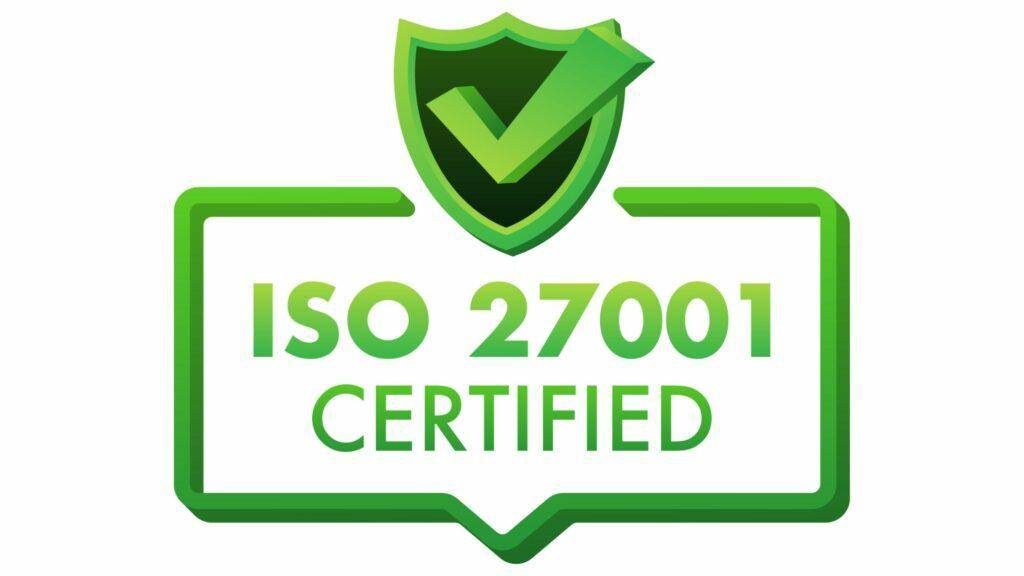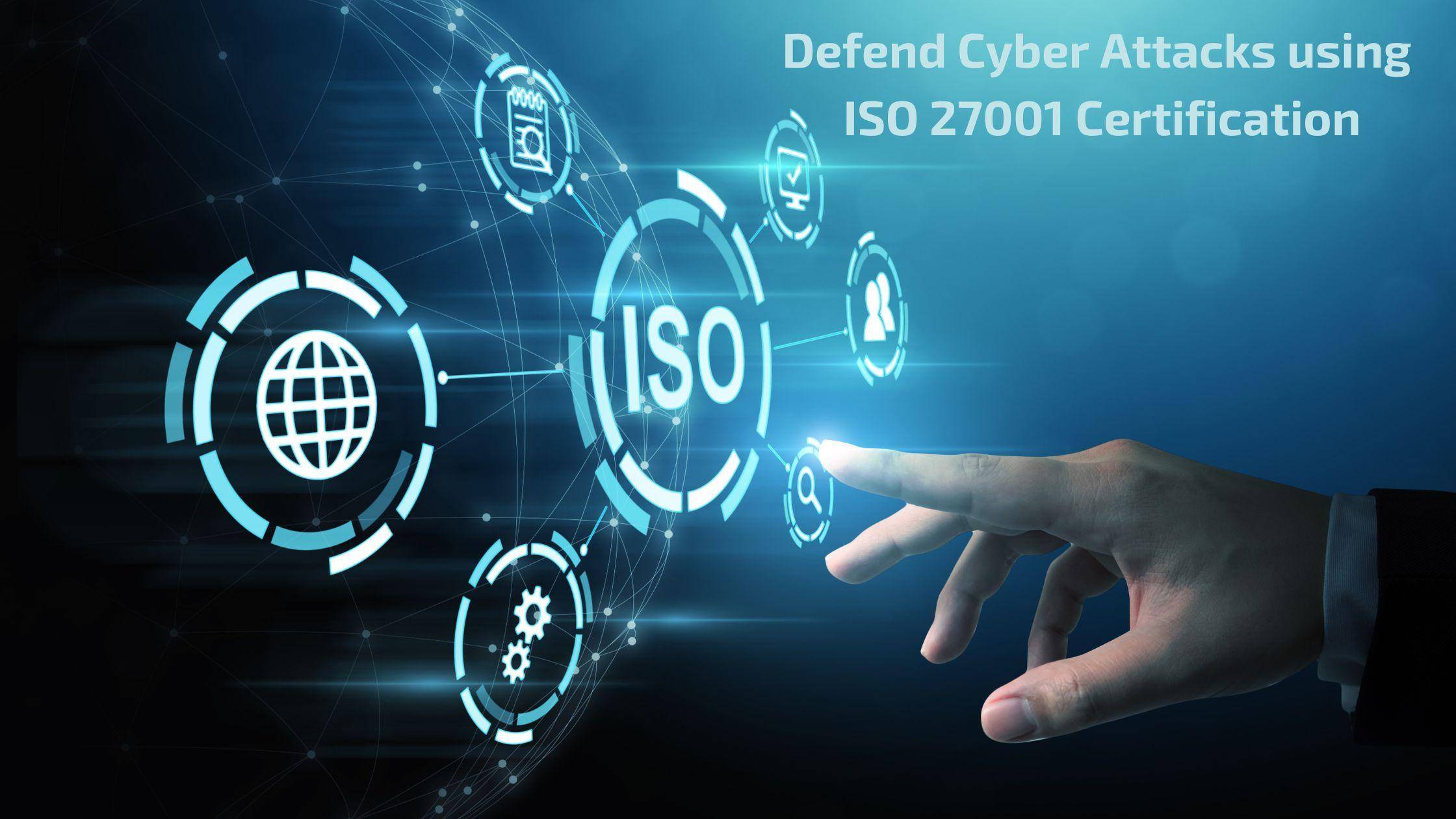The information security procedures that are in place within your Organization are designed to protect the Confidentiality, Integrity and Availability of your data. The ISO 27001 Standard sets out best practice for an ISMS [Information Security Management System] and provides a framework that helps you implement these procedures consistently and effectively. It also gives you confidence that they will be managed correctly at all times.
In a business environment, information is a valuable asset that must be protected against loss, damage or attacks that can compromise the confidentiality, integrity and availability of your Organization’s data. Information security is important to all Organizations because it reduces their risk exposure and helps them to comply with regulations such as PCI DSS and GDPR. These regulations set out specific requirements for how you should manage customer data in order to keep customers safe from cybercrime. You can achieve this by implementing an Information Security Management System [ISMS].
Table of Contents
ToggleWhat are the benefits of ISO 27001 for your Organization?
ISO 27001 is the international standard that describes best practice for an ISMS. It can be used as a framework to develop your own ISMS or it can be adopted as a generic management system to help you implement ISO 27001 across your business in accordance with the standard.
An ISO 27001 implementation is a process-based approach that builds up your Information Security Program over time in a phased way, starting with what is needed right now, then building on top of that as you progress towards maturity.
It is a risk management standard that helps Organizations manage the security of assets such as Financial Information, Intellectual Property, Employee details or Information entrusted to you by Third Parties.
ISO/IEC 27001:2013 provides requirements for establishing, implementing, maintaining and continually improving an Information Security Management System [ISMS]. The standard helps Organizations protect their assets from malicious attacks and reduce their risk exposure in accordance with ISO’s principles-based approach.
Information security is a complex issue. It can be difficult to know where to start when looking at information security, or what should be done. ISO 27001 is not a product or service in itself, it’s simply a set of standards that you can use as part of an overall approach to information security management. Just as there are many ways to structure your Organization and run it day-to-day, there are many different ways to implement ISO 27001 within your Organization. The good news is that this flexibility means that anyone with an interest in information security can find something useful from ISO 27001 regardless of size or budget constraints!
What does the ISO 27001 Standard cover?
ISO 27001 is a Risk Management Framework. It covers People, Processes and IT systems by applying a Risk Management Process. The objective of ISO 27001 is to help you identify your Information Security Risks, decide how you should manage them, and then implement those decisions in order to achieve that goal.
How? Let’s take a look at the process:
- Identify risks through scoping and gap analysis.
- Understand where your current Processes, People and IT systems have gaps in security. This is done by mapping out the current state of your business including its Procedures, Technology Infrastructure and Policies.
- Decide how to manage them.
- Implement those decisions.
A risk assessment is the first step in any ISO 27001 implementation. It involves collecting information about your Organization’s current security state, identifying potential gaps between that status and your desired level of protection, and defining how those gaps may be addressed. This helps you to understand what is currently being done well and where improvements can be made.
The second stage is to identify your risks. This may sound simple, but if you’ve ever dealt with information security before then you know that there are many different types of threat out there! The first step is to understand your Organization’s current state. This involves gathering data on the risks that currently exist, as well as identifying areas where you may be vulnerable. You then need to identify how these vulnerabilities can affect your business, and what the consequences of a breach would be.
The next step is planning for change—a process that identifies the actions needed to close gaps identified during the previous phase and put them into effect. The first step is to determine the scope of your ISO 27001 project. This includes identifying what you need to protect, who can access it and where it’s located. You should also consider how much time you have available and any budget constraints.
How does ISO 27001 Standard help Organizations?
The major benefits of ISO 27001 Standard is that it can help small Organizations as well as large ones, in any sector, anywhere in the world. ISO 27001 is a global Standard, but it can and should be adapted to suit each Organization’s specific needs. It provides a flexible framework for security management that can be applied across any sector, anywhere in the world.
This makes it an excellent choice for small Organizations that may not have the resources or expertise needed to develop their own custom Cybersecurity Program. Even large multinational corporations may find ISO 27001 beneficial: even though they already have robust security programs in place, having another standard they can follow gives them another way of demonstrating their commitment to data protection (which often translates into higher customer trust).
It will provide a framework to ensure that these criteria are applied consistently and effectively throughout your business and managed correctly. ISO 27001 is not a one-size-fits-all solution, so it’s important to talk with your auditor before deciding on an ISO Certification process. Given that the standard is risk based, they will assess the risks within your Organization then explain how they would approach implementing an Information Security Management System [ISMS] tailored to your needs.
It’s also worth noting that there are different levels of certification available – from “Information Security Management System” [ISMS] all the way up to “Information Security Management System Integrated with Environmental Management Systems” [ISM/EMS].
Conclusion
The major benefits of ISO 27001 include small and medium sized Organizations winning more business because their customers know that their information will be secure. ISO 27001 can help you to win more business from existing and new customers, because it helps you to gain their trust. Your information will be safer and more secure, so when you are competing for a contract against another company that does not have ISO 27001 certification, the customer will choose your products or services over theirs. In fact, many Organizations prefer to work with third party service providers who have ISO 27001 certification because they know that their data is safe and secure when working with them.
Protect your business from cyber attacks with ISO 27001: The rate of cyber attacks is increasing every year. According to an article published by the Ponemon Institute, the average cost of a data breach is $3.62 million and rising.
Benefits of ISO 27001 Certification includes protecting your business from such threats. It is a framework for effective information security management that can help you manage the security of assets such as financial information, intellectual property (IP), employee details or information entrusted to you by third parties.
ISO 27001 is a quality standard that ensures that information security provisions are in place within your Organization. It will help you build a culture of security awareness and make sure all staff know how to handle sensitive data appropriately, so it can be protected from loss or damage by cyber attacks.

Neumetric offers ISO 27001 Certification to Organizations of all sizes. Get your Organization ISO 27001 Certified today and protect your Business from cyber attacks! Visit our ISO 27001 Certification Service page to know more.
FAQs
What are the benefits of ISO 27001 Standard for an employee?
Benefits of ISO 27001 Certified Organization include the following benefits for employees as well:
- A safer working environment
- Better security and protection of personal information
- Simplified compliance with industry standards.
Why is the ISO Standard important to a company?
The ISO standard is important because it helps companies to prevent and respond effectively to cyber attacks. It also helps a company maintain its reputation in the market, which can be crucial for business success.
What are the three (3) ISO standards?
The three ISO standards are: ISO 14000, ISO 27001 and ISO 9001.
- The ISO 14000 standard was released in 1996 and focuses on environmental management systems. The standard can be applied to any industry that produces waste or pollution during production processes.
- The ISO 27001 Standard focuses on the management of information security risks. The standard was released in 2005 and is applicable to any organization that handles sensitive information.
- The ISO 9001 Standard focuses on quality management systems. It was released in 1987 and applies to any organization that produces a product or service for sale, either directly or indirectly through an intermediary such as a supplier or distributor.
How do ISO Standards work?
The ISO Standards are voluntary. This means that an organization can choose whether or not to adopt them. However, if an organization chooses to adopt a particular standard, it must ensure that it is in compliance with the requirements outlined in that standard. The major benefits of ISO 27001 Standard is that it can be applied to an Organization of any size, whether it be a start-up or a huge Organization with thousands of employees.


